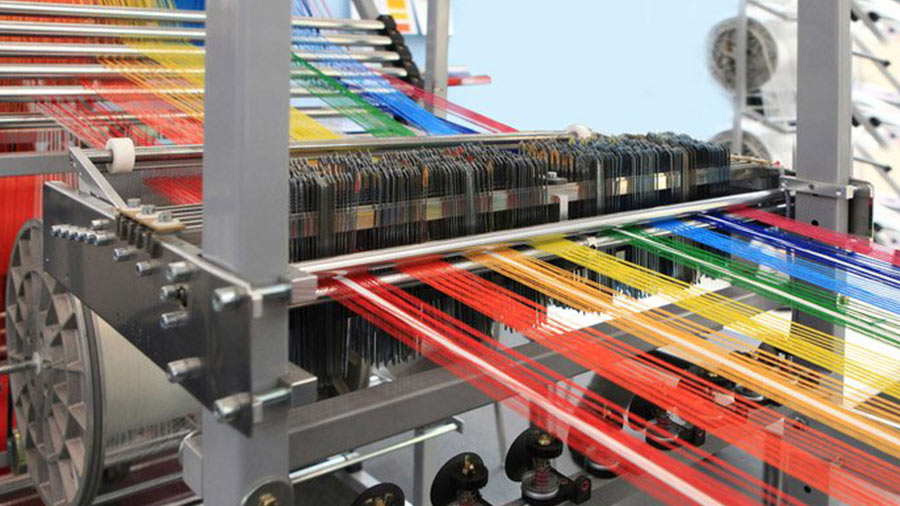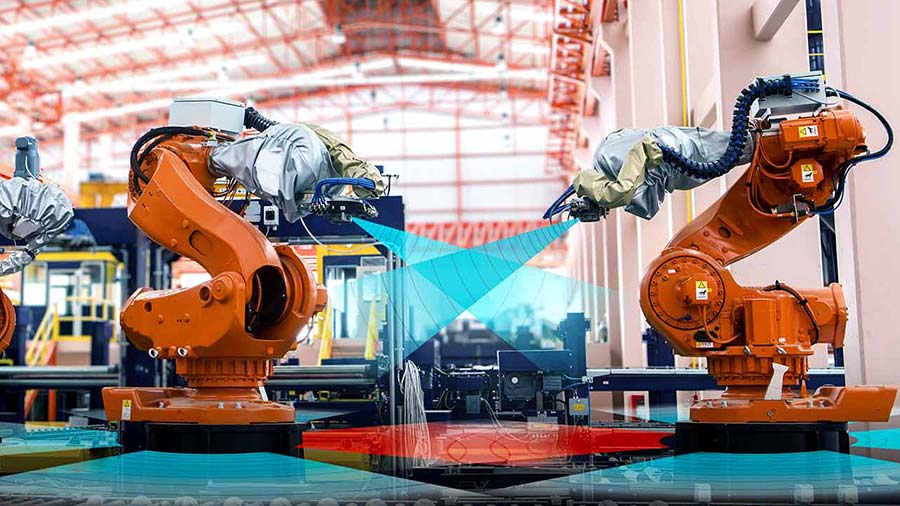
Structuring compliant manufacturing expansion
Asia remains a global manufacturing hub, with competitive labor costs, expanding infrastructure, and proximity to key supply chains. As multinationals restructure operations in response to supply chain diversification and geopolitical shifts, Asia offers compelling opportunities for market entry, factory relocation, and contract manufacturing. However, entering or expanding manufacturing operations in Asia requires navigating regulatory compliance, labor law, location benchmarking, and cross-border IP protection. Long-term success demands careful planning around site selection, operational structuring, and supply chain design across jurisdictions.
Supporting Manufacturing Performance: Our Advantage
Decades of experience across Asia’s manufacturing corridors
We advise foreign investors, industrial operators, and engineering firms on regional setup, structuring, and expansion.
Full-spectrum support for supply chain and compliance needs
From benchmarking zones to designing compliant supply networks, we deliver complete operational clarity.
Integrated advisory for factory setup and strategic investment
We support cross-border investment, risk planning, HR modeling, and ERP integration for scalable growth.
How We Support Manufacturers and Industrial Operators
Selecting a site in Asia requires balancing costs, compliance, labor access, and infrastructure. We help identify, compare, and prioritize ideal manufacturing zones.
- Benchmarking SEZs and industrial parks across Asia
- Labor availability, wage forecasting, and utilities analysis
- Evaluation of policy incentives, trade corridors, and FTAs
- Operational risk scoring (compliance, infrastructure, political)
- Site feasibility reports and investor shortlists
We design supply chain models that reduce cost and risk while meeting trade, logistics, and tax planning goals.
- Regional sourcing and component localization advisory
- Customs optimization and logistics structuring
- Risk mitigation across inputs and multi-jurisdiction production
- Trade agreement utilization and re-export planning
- Supplier audits and compliance support
Navigating regulatory structures, labor laws, and IP strategy is critical to compliant, cost-effective manufacturing growth.
- Entity structuring and corporate presence optimization
- Labor law compliance and cost benchmarking
- HR policy localization and workforce planning
- IP strategy and trademark protection for manufacturers
- Advisory on compliance with ESG and workplace governance
Sustained industrial success requires clear internal controls, transparency, and proactive risk management.
- Holding Company advisory and structuring
- Corporate governance frameworks, board structuring and representation
- Corporate secretarial and licensing
- Internal audit setup and policy development
- Temporary CFO and other strategic roles
- Anti-corruption, ethics, and whistleblower programs
- Regulatory reporting and cross-entity transactions advisory
- Training for compliance, finance, and HR teams
Digital infrastructure is essential to scale industrial operations and meet market and reporting demands.
- ERP implementation for production, inventory, and compliance
- Cross-border data integration and cybersecurity setup
- Customization of modules for HR, procurement, tax, and reporting
- Vendor management systems and inventory automation
- Support for digital audit trails and ESG reporting
Have Any Questions?
Reach out to our local experts
FAQs - Manufacturing and Industrial
Asia offers several viable pathways for foreign manufacturers—greenfield investments, joint ventures, acquisitions, and contract manufacturing partnerships. However, each path involves different compliance requirements, labor laws, IP protection concerns, and land-use restrictions.
Many jurisdictions impose rules around foreign ownership, especially in industries tied to national interest or infrastructure. In countries like Vietnam or Indonesia, foreign-owned enterprises may require specific zone registration or approval from investment authorities. Choosing the right entry structure—WFOE, JV, or representative office—requires careful evaluation of operational control, capital flexibility, and long-term exit options.
We support manufacturers by mapping jurisdiction-specific restrictions, comparing location feasibility, and advising on optimal legal structuring based on industry, production model, and sourcing strategy.
Governments across Asia actively promote manufacturing investment through tax holidays, accelerated depreciation, and location-based benefits—especially in sectors such as electronics, automotive, green energy, and textiles.
Some examples include:
- Vietnam – Preferential tax rates and tax holidays for high-tech manufacturers in industrial parks
- India – Incentives under the PLI (Production Linked Incentive) scheme and concessional tax rates for new manufacturing entities
- Philippines & Indonesia – Income tax holidays and duty exemptions in SEZs
- China – Super deductions for R&D expenses and VAT rebates for export manufacturers
We help companies identify eligibility, quantify savings, and maintain ongoing compliance with post-incentive obligations to avoid clawbacks or audit penalties.
Many companies underestimate how location and sourcing decisions in Asia impact long-term cost, compliance, and operational resilience. While labor cost is a key driver, factors such as logistics, tax exposure, and supplier risk can make or break a project.
We approach site selection as a strategic, data-driven process. Our teams benchmark industrial zones across labor availability, wage trends, utility infrastructure, and tax incentives. We also evaluate inbound and outbound logistics, raw material sourcing options, and ESG-related risks (e.g., local environmental policies, labor conditions).
For supply chain setup, we guide companies on customs clearance structuring, supplier diversification, tariff optimization under trade agreements, and local content rules. Our goal is to help businesses build not just a factory, but a scalable, efficient production footprint.
Factory setup in Asia is a multi-stage process involving both national and local government approvals. While the exact requirements vary, most jurisdictions require clearances for land use, environmental impact, building design, and operational licensing. These are in addition to corporate registrations and tax authority filings.
Key approvals typically include:
- Business registration or investment license
- Land lease or acquisition approval
- Environmental and fire safety permits
- Factory design and construction approval
- Operational license and labor compliance clearance
In some cases, permits must also be obtained from local industrial park authorities or special economic zone administrators. We support clients by coordinating with local counsel, preparing application materials, and managing communications with regulatory agencies to minimize setup delays.
Timelines depend on the jurisdiction, type of manufacturing activity, and whether the facility is located within an industrial zone or special economic zone (SEZ). Generally, the process ranges from 3 to 6 months, though this can vary widely.
For example:
- Vietnam: Factory licenses in IPs/SEZs can be completed in 60–90 days if documents are pre-cleared
- India: Timelines depend on state-level approvals and environmental clearances
- Indonesia and the Philippines: Some approvals are centralized, but others require layered local authority engagement
We help businesses plan realistic launch timelines by mapping all required steps, pre-checking compliance documentation, and engaging local authorities early in the process to reduce bottlenecks and surprises.
Cross-border M&A in manufacturing requires managing a mix of regulatory, legal, and operational risks—especially when target companies own land, employ unionized workers, or operate under government contracts.
We provide end-to-end support, including:
- Initial market and deal feasibility analysis
- Legal and compliance due diligence (labor, licenses, zoning, environmental)
- Tax structuring and capital flow planning for the acquisition
- Review of IP ownership, vendor/supplier contracts, and lease agreements
- Post-deal integration support covering HR transitions, ERP systems, and compliance upgrades
Our goal is to ensure that manufacturers entering Asia through acquisition do so with a clear understanding of obligations, risks, and the steps required for operational integration.
Labor availability varies widely across Asia’s manufacturing hubs. While countries like Vietnam and Indonesia offer abundant general factory labor, finding experienced technical staff, engineers, or plant managers can be challenging in certain provinces.
We help clients assess:
- Local workforce skill levels and education pipelines
- Wage expectations and regional minimum wages
- Labor turnover risks and unionization considerations
- Workforce planning strategies to align with automation investments
Understanding these factors upfront ensures stable operations and long-term cost control.
Many Asian countries enforce local content rules to encourage domestic value-addition, especially for industries like automotive, electronics, and pharmaceuticals. Additionally, certificates of origin (COO) determine eligibility for reduced tariffs under free trade agreements.
Failure to plan for these can lead to:
- Loss of preferential tariff access
- Higher import duties for non-compliant components
- Contract penalties under government procurement rules
We help companies integrate local sourcing into their supply chain strategy and align COO documentation with trade compliance to optimize costs and market access.
Managing multiple factories and suppliers across jurisdictions requires real-time data integration, compliance alignment, and scalable workflows.
We assist manufacturers by:
- Advising on ERP system selection tailored to multi-country operations
- Supporting localization for tax, payroll, and compliance modules
- Integrating supply chain, production, and financial data for visibility
- Aligning ERP rollout with internal controls, reporting, and audit needs
A well-implemented ERP system enhances operational agility, reduces manual risk, and supports strategic decision-making.
Our Clients
Discover our esteemed global clients across diverse sectors. We believe in providing our clients with exceptional service and a commitment to being their partner for growth in Asia.
See what our clients say about usContact Our Experts

We provide expert advisory and corporate services across Asia, guiding businesses through complex markets and regulations.











